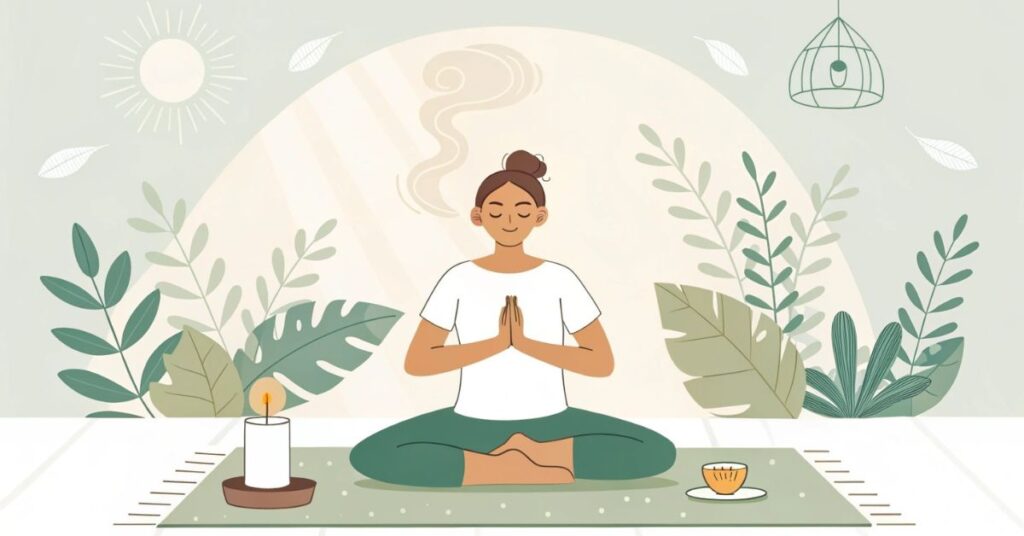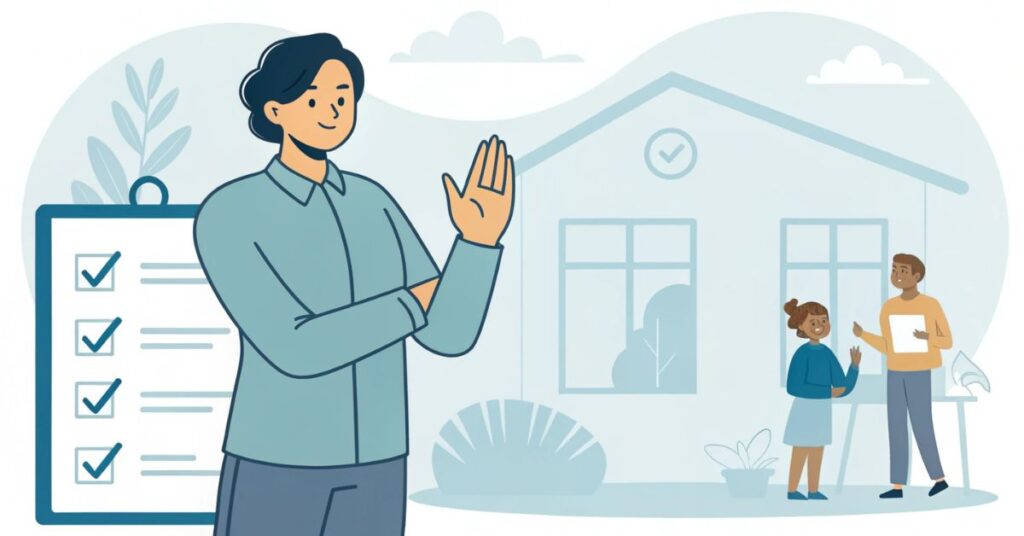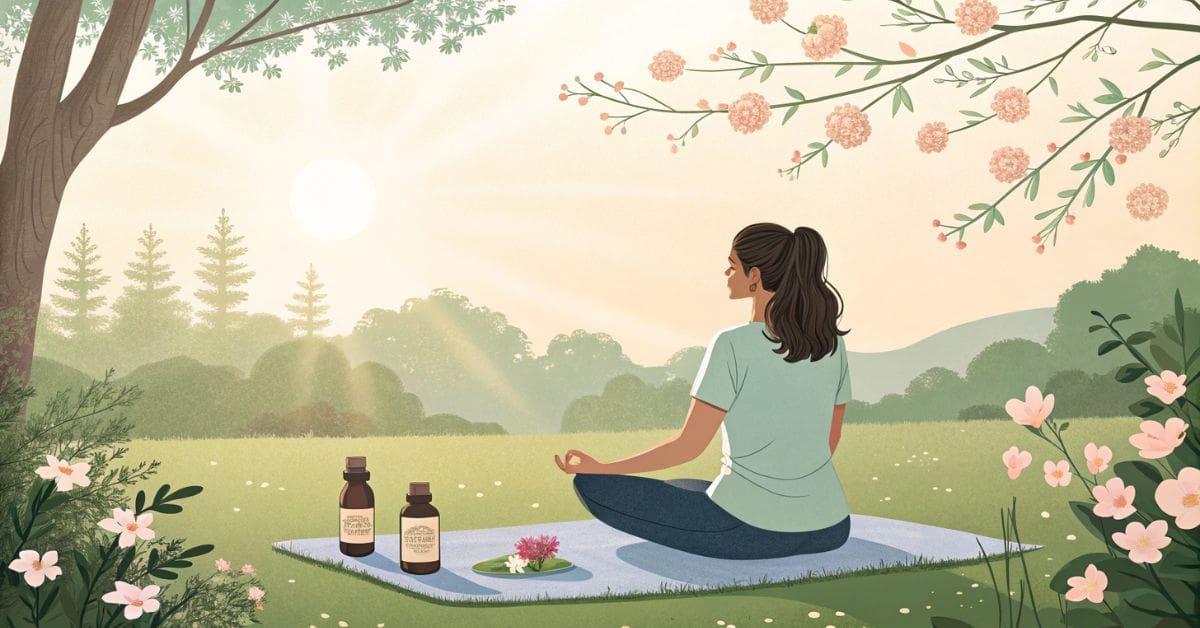Anxiety is one of the most common mental health challenges people face today. Whether it’s caused by stress at work, personal relationships, or global events, learning how to handle anxiety naturally can help you regain control of your life.
In this article, we’ll explore various natural techniques and strategies that are scientifically proven to reduce anxiety and help you live a more peaceful life. These are simple and effective ways that anyone can implement, regardless of their lifestyle or background.
Understanding Anxiety: What Is It and Why It Happens?
Anxiety is the body’s natural response to stress. It’s a feeling of fear or apprehension about what’s to come. Many people experience occasional anxiety, but when it becomes chronic, it can interfere with daily activities. Understanding the causes and symptoms of anxiety is the first step in addressing it naturally.
Causes of Anxiety:
- Stressful life events: Major changes, such as moving, a job loss, or a breakup, can trigger anxiety.
- Health-related worries: Ongoing health issues or concerns about future illnesses may also contribute.
- Genetics: Some people may have a family history of anxiety disorders, making them more susceptible.
- Caffeine and stimulants: Overconsumption of caffeine or other stimulants can worsen anxiety.
Read Also: How to Lose Belly Fat Naturally with LatestHealthTricks
How to Handle Anxiety Naturally – LatestHealthTricks Advice
Managing anxiety without resorting to medication is possible with the right techniques. Let’s explore natural methods that have proven effective.

Mindfulness Meditation for Stress Relief
Mindfulness meditation is one of the most powerful tools for handling anxiety naturally. It involves paying attention to your thoughts and feelings in the present moment without judgment. Practicing mindfulness has been shown to reduce the physiological symptoms of anxiety, such as rapid heart rate and shallow breathing.
- How it works: By focusing on your breath or a specific object, you can calm the nervous system and reduce anxious thoughts.
- How to practice: Start with just 5-10 minutes a day. Find a quiet space, sit comfortably, and focus on your breathing.
Physical Exercise: Your Natural Stress Reliever
Exercise is an excellent natural remedy for anxiety. It not only improves physical health but also has powerful effects on mental well-being. When you exercise, your body releases endorphins—chemicals in the brain that act as natural painkillers and mood elevators.
- How it works: Physical activity increases the production of serotonin, which stabilizes mood and reduces anxiety.
- Effective exercises: Walking, yoga, jogging, and swimming are great choices.
Breathing Exercises: A Quick Anxiety Fix
When anxiety strikes, deep breathing exercises can bring you back to a calm state. The goal is to activate the body’s relaxation response by slowing down your breathing.
- How it works: Slow, deep breaths send signals to your brain to calm down and reduce the stress response.
- How to practice: Try the 4-7-8 technique: inhale for 4 counts, hold your breath for 7 counts, and exhale slowly for 8 counts.
Herbal Remedies and Supplements
Certain herbs have been used for centuries to relieve anxiety. Natural herbs such as chamomile, lavender, and valerian root are known to have calming effects. Taking these in supplement form or as teas can be an effective way to combat anxiety.
- Chamomile: Known for its calming properties, chamomile tea can help you relax before bed.
- Lavender: Lavender oil is often used in aromatherapy to reduce feelings of stress and anxiety.
Adequate Sleep for a Calmer Mind
Sleep deprivation can significantly worsen anxiety. When you’re well-rested, your brain can process emotions more effectively and handle stress better. Lack of sleep, on the other hand, makes it harder to regulate mood, making you more susceptible to anxiety.
- How it works: Deep sleep restores balance to neurotransmitters that regulate mood.
- Tips for better sleep: Try to go to bed and wake up at the same time each day. Create a calming bedtime routine and avoid screens before sleep.
Nutrition: Fueling Your Brain for Mental Health
What you eat plays a huge role in how you feel. A balanced diet can help stabilize your mood and energy levels, making you less prone to anxiety.
- Brain-boosting foods: Foods rich in omega-3 fatty acids, like salmon, and foods high in magnesium, like spinach, can help reduce anxiety.
- Foods to avoid: Highly processed foods, sugar, and excessive caffeine can contribute to anxiety and stress.
Social Support: Connecting with Others

Isolation can exacerbate feelings of anxiety. Having a support system of friends, family, or a community can help you manage anxious feelings. Social interactions can provide reassurance and remind you that you’re not alone in your struggles.
- How it works: Social support releases oxytocin, a hormone that helps reduce stress and anxiety.
- Stay connected: Schedule regular meetups or calls with loved ones to maintain your social bonds.
Journaling for Clarity
Writing down your thoughts can provide an outlet for your feelings. Journaling is an excellent way to understand and manage your anxiety.
- How it works: Journaling allows you to process and reflect on your emotions, which can help you gain perspective and clarity.
- How to practice: Write freely for 10-15 minutes a day. Don’t worry about grammar or structure—just express your thoughts.
Aromatherapy: The Power of Scents
Aromatherapy is the practice of using essential oils to promote health and well-being. Scents like lavender, chamomile, and bergamot can calm your nervous system and reduce anxiety symptoms.
- How it works: The sense of smell is closely linked to emotions, and certain aromas can trigger relaxation.
- How to use: Diffuse essential oils in your home or add a few drops to a bath for relaxation.
Limit Caffeine and Alcohol Intake
Both caffeine and alcohol can interfere with your body’s ability to relax and regulate anxiety. While a cup of coffee may provide a quick energy boost, it can also cause jitters and make anxiety worse.
- Caffeine: Excessive caffeine can raise heart rate and blood pressure, triggering anxious feelings.
- Alcohol: Although alcohol may initially make you feel relaxed, it can disrupt sleep and exacerbate anxiety later.
Yoga and Tai Chi: Moving Meditation
Yoga and Tai Chi combine gentle movements with mindful breathing. These practices can help reduce stress, improve mental clarity, and provide relief from anxiety.
- How it works: The slow, deliberate movements in yoga and Tai Chi help focus the mind and body, reducing anxious thoughts.
- Best for: Beginners should start with beginner-friendly sessions or classes.
Cognitive Behavioral Therapy (CBT) Techniques
Although CBT is typically used in therapy, you can use some of its techniques on your own to manage anxiety. CBT focuses on challenging negative thought patterns and replacing them with more positive and realistic ones.
- How it works: Identifying and reframing irrational thoughts helps reduce anxiety.
- Self-help tip: Start by keeping a thought diary and looking for patterns in your anxious thoughts.
Positive Affirmations: Reprogramming Your Mindset
Positive affirmations are simple, positive statements that help replace negative thought patterns. Repeating affirmations daily can improve your outlook on life and reduce feelings of anxiety.
- How it works: Repeating affirmations can help retrain your brain to think more positively.
- Examples: “I am calm and in control,” or “I have the strength to handle challenges.”
Art Therapy and Creative Expression
Engaging in creative activities such as painting, drawing, or crafting can help take your mind off anxiety and promote relaxation. Creative expression is a therapeutic way to release pent-up emotions.
- How it works: Artistic activities allow you to express emotions that may be hard to verbalize, reducing stress.
- Getting started: You don’t need to be an artist. Even doodling can provide relief.
Setting Healthy Boundaries

Learning to say “no” is a vital part of managing anxiety. Taking on too many responsibilities can lead to burnout and increased anxiety.
- How it works: Setting boundaries ensures that you don’t become overwhelmed by others’ demands, giving you more control over your time.
- How to practice: Start by assessing your workload and delegating or refusing tasks that aren’t a priority.
FAQs About Handling Anxiety Naturally
Can I manage anxiety without therapy or medication?
Yes, there are many natural ways to handle anxiety, including mindfulness, exercise, herbal remedies, and more. However, if your anxiety is severe, it’s important to consult with a healthcare professional.
How long does it take for natural methods to reduce anxiety?
The time it takes to feel results varies depending on the individual and the methods used. Practices like mindfulness and exercise can provide quick relief, while lifestyle changes may take longer.
Are there any side effects to using natural remedies for anxiety?
Most natural remedies, such as herbal teas or exercise, are safe. However, always check with your healthcare provider before trying new remedies, especially if you have existing medical conditions.
Can anxiety be completely cured with natural remedies?
While natural remedies can significantly reduce anxiety, a complete cure may require a combination of methods, including professional therapy or medication, depending on the severity of the condition.
Read Also;








Leave a Reply